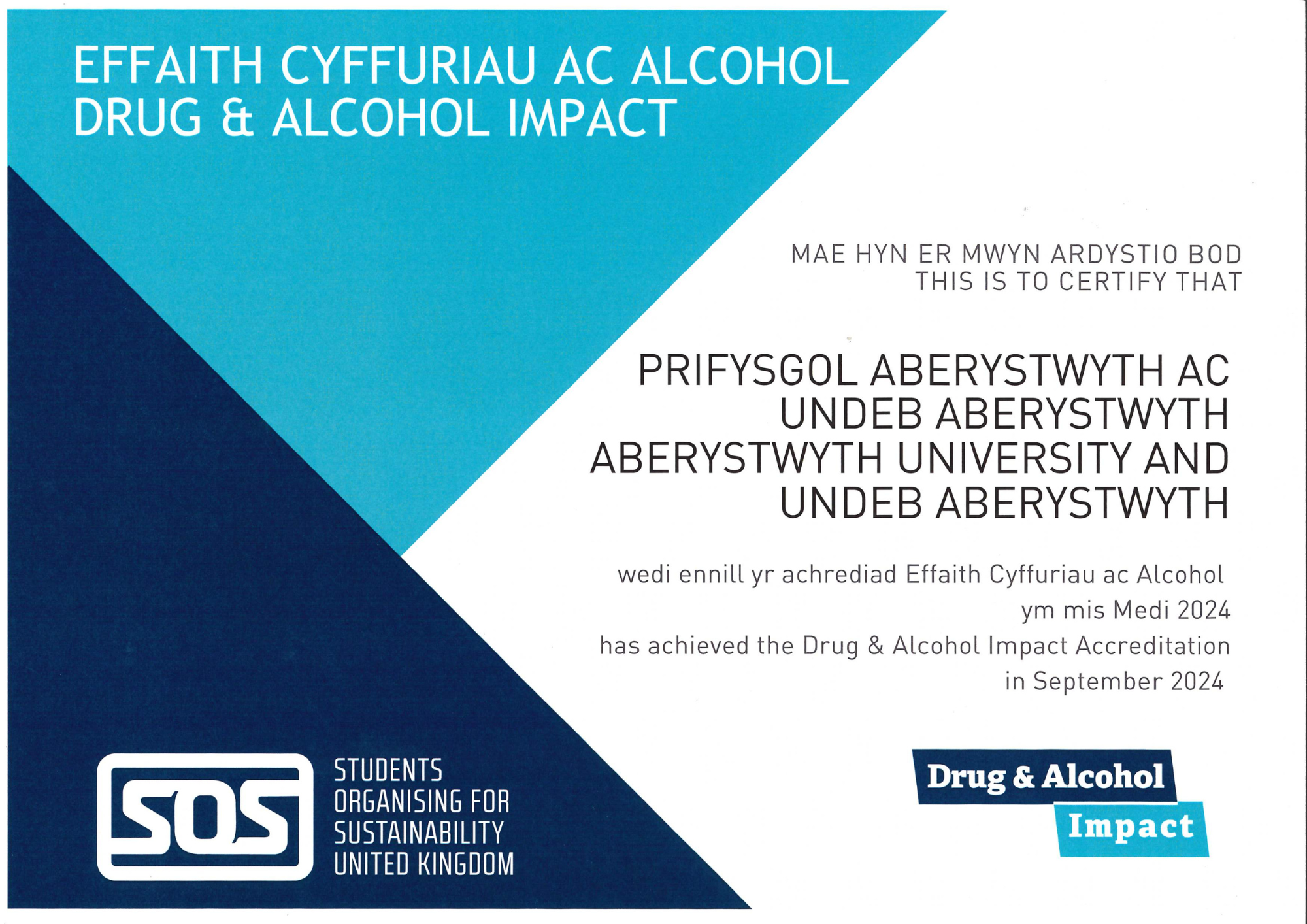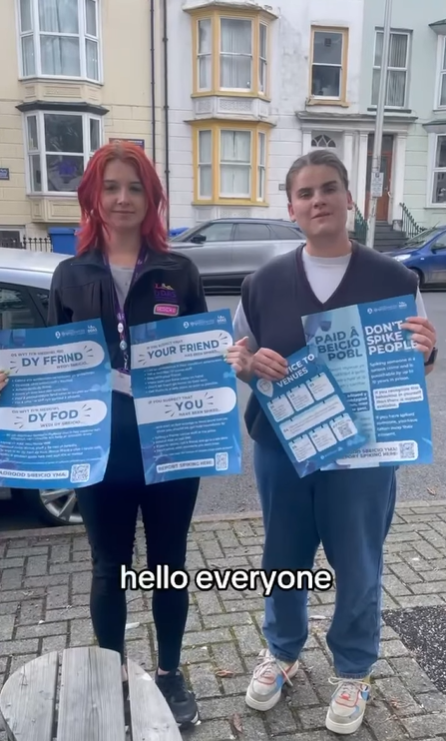
Students should always be allowed to enjoy themselves on nights out and should always feel safe.
At the Union no one will ever be forced or pressured to drink alcohol. We hold many events that are alcohol free.
We have 3 main goals:
- Reduce Stigma: Challenge the stigma around seeking help for substance issues.
- Enhance Policy Awareness: Inform students about campus policies and legal implications.
- Encourage Personal Responsibility: Empower students to make informed, responsible decisions.
We believe the opposite to addition is connection.
Studies now show addition can form from lonliness and having a good network surrounding you can support you and your mental wellbeing. Stuggling to find your comminity? Why not check out our clubs, socieities, and volunteering projects to see if there is a student group thats right for you
"Our Drug and Alcohol campaign aims to take a harm reduction approach to use of substances. Everyone assumes all university students drink till they’re drunk and take drugs because they’re living independently so they can, when this isn’t the case. We were looking to promote safer drinking, knowing your limits and tying it into our work on anti-spiking; recognising dangerous or destructive behaviours and seeking support. We took our efforts to the streets of Aber on a society night to give out anti-spiking kits and information about DDAS, who we worked with on this. DDAS it was a good opportunity to let students know that if they were seeking support that Dyfed Drug and Alcohol Service are on our campus once to twice a week, holding drop-in sessions to guide students and the community in our harm-reduction approach.” - Helen Cooper (Wellbeing Officer 2023-2024)
During 2023 – 2024, Undeb Aberystwyth partnered up with Aberystwyth Student Services to complete the SOS (Students Organising for Sustainability) Student Drug and Alcohol Impacts. This audit supports us to know how we can support students in our community.
Order Drug Testing Kits here now
It is important to get your drugs tested for several reasons:
- Safety: Testing can identify potentially harmful substances or unexpected contaminants in drugs, reducing the risk of overdose or adverse reactions.
- Accuracy: Knowing the composition and potency of drugs helps users make informed decisions about dosage and consumption.
- Harm Reduction: Testing promotes responsible drug use by providing users with information that can minimize health risks.
- Community Health: Testing can contribute to public health efforts by identifying dangerous batches or trends in drug purity.
- Empowerment: Access to testing empowers individuals to take control of their health and well-being while engaging in substance use.
Discover how different drugs, both legal and illegal, interact with each other to protect your health and safety.
What is Student Drug & Alcohol Awareness Week?
|
It’s a week to encourage awareness and discussions of student substance use and wellbeing! We will be encouraging the conversation about drugs and alcohol during your time at university, giving you tips and how to get support.
In 2023 the SU partners with local services Dyfed Powys Drug and Alcohol Services (DDAS) who had a stall in the union, educating about drug and alcohol misuse as well as providing anti-spiking kits.
During Drug and Alcohol Awareness week the Union held a stall in town alongside DDAS, providing information, anti-spiking kits, condoms, and lube, as well as some sweets.
Check out DDAS here.
|
 |
A harm reduction approach is a set of practical strategies and ideas aimed at reducing the negative consequences associated with risky behaviours, particularly substance use. It acknowledges that some people may continue to engage in these behaviours despite potential risks and focuses on minimizing harm rather than promoting abstinence alone.
Key principles of harm reduction include:
- Acceptance: Acknowledging that substance use is a complex issue and that individuals have the right to make their own choices.
- Pragmatism: Implementing practical strategies that prioritize immediate safety and health, even if complete cessation of substance use is not achieved.
- Empowerment: Providing individuals with resources, support, and information to make informed decisions about their own health.
- Focus on Goals: Setting achievable goals that reduce risks associated with substance use, such as safer injection practices, using clean needles, or accessing treatment services.
- Non-judgmental Approach: Offering assistance without moralizing or stigmatizing individuals based on their substance use.
Why it's considered best practice:
- Effectiveness: Research has shown that harm reduction strategies can significantly reduce overdose deaths, transmission of infectious diseases (like HIV and Hepatitis C), and other health risks associated with substance use.
- Human Rights: It respects the human rights and dignity of individuals who use substances, acknowledging that punitive measures often exacerbate harm and do not address underlying issues.
- Cost-effectiveness: Implementing harm reduction measures can be more cost-effective than dealing with the consequences of untreated substance use, such as healthcare costs or criminal justice expenses.
- Public Health Impact: By reducing the spread of diseases and minimizing overdose deaths, harm reduction contributes to broader public health goals and community well-being.
Overall, a harm reduction approach recognizes the realities of substance use and seeks to minimize harm through practical, evidence-based strategies that prioritize health and safety. It represents a compassionate and pragmatic response to a complex social and public health issue.
Read more about harm reduction here
Gallery (2022-2024)
 |
Your Wellbeing Officer Mo and your Campaigns and Democracy Coordinator joined up with DDAS to provide hospitality venders in town with anti-spiking posters and DDAS contact cards ready for Welcome Week!
This is in the aim to educate and keep everyone safe and having a good time🤘 We will shout out the venues in town who have the posters up so you can see who is looking out for your safety
(Watch video)
|
External Resources:
If you would like to be more involved in this work please reach out to suvoice@aber.ac.uk.
Want to find out more about these campaigns?